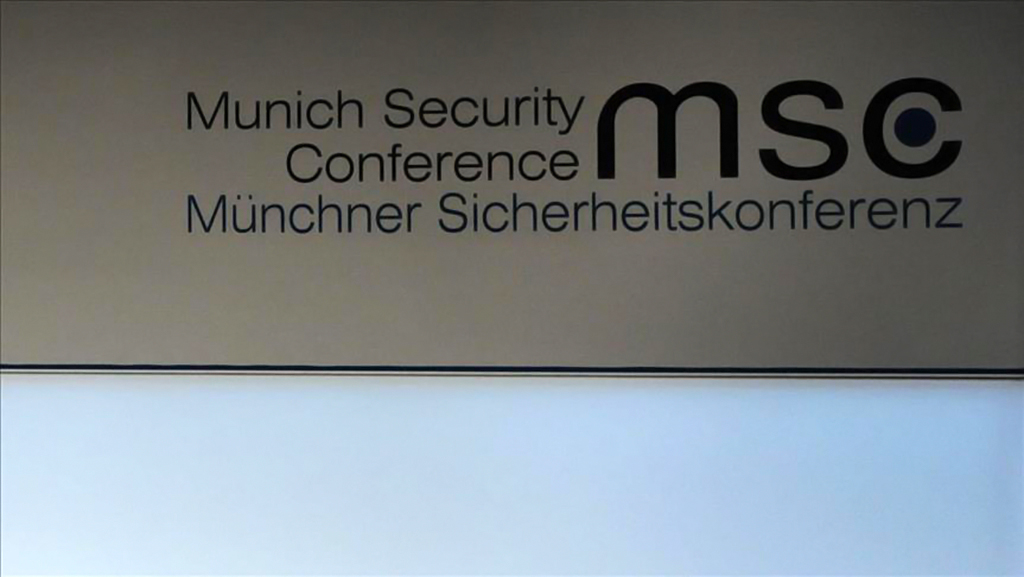Who decides US strategy in Syria
Since the recent phone call between President Recep Tayyip Erdoğan and U.S. President Donald Trump last Sunday, we have seen that the major issue to debate has become the U.S. decision to withdraw from Syria. The intensity of objections to U.S. withdrawal from the area and the U.S. "green light" for Turkey's operation raised several questions about the arguments and rationale behind such criticism.
More


Too early to plan Erdoğan's retirement party
President Recep Tayyip Erdoğan hosted Turkey's 30 metropolitan mayors in Ankara on Wednesday. Together with cabinet ministers and members of the Presidential Council for Local Government Policy, he listened to their proposals and instructed his team to take necessary steps to accomplish key goals.
More
The CHP's electoral alliance with the Good Party (İP) and the Peoples' Democratic Party (HDP) scored victories in Istanbul and Ankara, breathing new life into Turkey's political opposition. Opposition figures are not yet over the anger that built up over many losing election cycles, but they have become cocky in light of recent wins.
The Syrian crisis is not something that can be handled solely through Turkish efforts; the region's biggest problem needs to be confronted by both external and internal stakeholders
Syria's northeastern city of Idlib, a rebel-controlled enclave, has seen indiscriminate bombardment by the Syrian regime and Russian forces in the last few weeks. The humanitarian catastrophe is affecting civilians, mostly in the Idlib area.
All eyes in Turkey are set on this month's municipal elections, yet a significant transformation is underway in the Middle East. U.S. President Donald Trump, whose Jerusalem move drew ire, recognized Israel's annexation of the Golan Heights in a radical overhaul of U.S. foreign policy.
How to handle Turkey-US tensions
On the condition that both sides engage in sincere negotiations, Ankara-Washington relations can easily get back on track again in a very short period of time
More


A reshuffling of the liberal world order
In fact, potential cooperation between China and Russia is mentioned as one of the significant threats for U.S. foreign policy. Of course this is the perspective of the U.S. and it is possible to read most of the decisions given by the U.S. administrations in the last few years in accordance with this changing threat assessment and perception.
More
The Munich Security Conference is an influential platform where global security trends are discussed every year by academics and policymakers.
The Khashoggi case has led to a government reshuffle in the Saudi kingdom, which has resulted in a consolidation of power for MBS, the crown prince who came under fire for his link with the murder
The U.S.' global influence and power is rapidly diminishing as a lack of political strategy in U.S. foreign policy is leaving the country more isolated than ever among its allies
Italian state’s security and counter-terrorism-oriented approach prevents it from adopting collaborative policies on Islam that do not criminalize Italian Muslims but aim at working with them hand-in-hand toward mutual benefits
Conflictual and exclusivist foreign policies are simply zero-sum games; the normalization of politics in the Middle East requires balanced relations among regional states
Sometimes the biggest challenge for policy makers is not the diagnosis of the problem, but the lack of a proper strategy to fix it; nowadays one of the biggest hurdles in Washington.
Washington should find a way to cooperate with Ankara as Trump steps toward creating a more homogeneous and hawkish administration on diplomacy, national security and the economy
A new way of Arab nationalism based on more radical sectarian discourses is currently being promoted by Mohammed bin Salman and his partners with the help of the U.S. to further fuel in the Middle East
The American invasion of Iraq can be demonstrated as a textbook example of how to kill a state and destroy a population, if not a nation.
In one of the most debated books in the U.S., "Political Tribes: Group Instinct and the Fate of the Nations," Amy Chua, a Yale University professor, wrote about how identity politics abroad is often missed by the U.S. and how this negligence has generated major failures in U.S. foreign policy.
The anti-Turkish lobby in the U.S. directs the Trump administration to determine its YPG policy, which is why relations between Ankara and Washington cannot stay on the right track
The U.S.'s approach to the crises in Iraq, Libya, Syria, Egypt, Yemen and Palestine since 2010 has been about its experience of the hegemonic crisis.
The new Saudi administration changing King Abdullah's 'engagement to the world' policy isolates Saudi Arabia in the region and risks its position in global balances

















